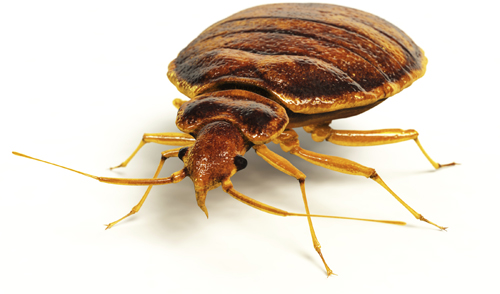Kinds Of Parasite Control: Which Method Is Right for Your Infestation?
When encountered with a pest infestation, the option of an appropriate method for insect control is important in effectively taking care of the scenario. From chemical treatments to organic options, there exists an array of strategies that can be utilized to attend to different sorts of insects. Each approach comes with its very own set of advantages and factors to consider, making the decision-making procedure a nuanced one. Recognizing the subtleties of each approach and examining their compatibility with the specific pest invasion handy is necessary for achieving lasting success in parasite management. By checking out the various kinds of parasite control methods available, people can make educated choices tailored to their distinct conditions, making sure an extra reliable and sustainable result in insect eradication.
Chemical Bug Control
Chemical parasite control entails using synthetic or naturally derived chemicals to manage and eliminate pest populaces effectively. This method is commonly used in agriculture, forestry, and domestic settings to deal with a wide variety of insects, including bugs, weeds, and rats. Using chemical pesticides can provide fast and targeted options to pest problems, making it a preferred choice for numerous individuals and services.
Among the crucial advantages of chemical bug control is its ability to quickly eliminate bugs, reducing the threat of damage to plants, residential or commercial property, and human wellness. By making use of details chemicals that target specific parasites, this approach can effectively regulate problems while lessening injury to beneficial organisms and the setting when used properly.
Nevertheless, using chemical bug control also increases issues regarding potential unfavorable impacts on non-target varieties, water resources, and human health and wellness. It is critical to adhere to security standards, use chemicals sensibly, and consider different pest control methods to lessen these dangers and ensure lasting parasite administration methods.
Biological Pest Control
Biological parasite control, likewise recognized as biocontrol, makes use of living organisms to lower and handle pest populaces normally. By utilizing the pest's all-natural predators or microorganisms, organic bug control provides a sustainable and ecologically pleasant option to pest monitoring.

Mechanical Pest Control
Using hand-operated and physical techniques to manage insect populaces, mechanical pest control uses an alternative strategy that does not depend on making use of living organisms or artificial chemicals. This technique involves using barriers, traps, or various other gadgets to literally prevent or eliminate pests. By blocking bug access points or establishing catches to catch them, mechanical pest control can properly minimize invasions without introducing chemicals right into the setting.
One typical example of mechanical parasite control is the usage of mesh screens on doors and windows to stop pests from getting in buildings. This easy yet reliable approach functions as a physical barrier, maintaining pests out while enabling correct air flow. Furthermore, gadgets like mousetraps, fly swatters, and ultrasonic repellents drop under the mechanical bug control category.
While mechanical insect control approaches can be labor-intensive and call for normal tracking and upkeep, they offer a lasting and eco-friendly remedy for taking care of parasite infestations. By combining various mechanical techniques, residential or commercial property proprietors can develop a thorough parasite control technique that reduces reliance on chemical pesticides.
Physical Parasite Control

Some usual physical parasite control methods include the usage of obstacles such as screens or internet to avoid pest entry, catches to record and eliminate pests, and hand-picking to physically get rid of insects from plants or structures. Furthermore, strategies like warm therapies can be utilized to control pests like bed bugs by increasing the temperature level to levels that are dangerous to the bugs.
Physical insect control is particularly useful in incorporated insect administration (IPM) methods, where numerous parasite control methods are combined for efficient bug monitoring while lessening using chemicals. By utilizing physical pest control methods, people can efficiently deal with bug infestations with very little ecological influence.
Integrated Insect Management
When applying physical insect control techniques navigate to these guys as part of pest monitoring techniques, Integrated Bug Monitoring (IPM) becomes an extensive technique that leverages different methods to efficiently regulate pest populaces. IPM concentrates on long-lasting prevention of parasites through a combination of biological, social, physical, and chemical devices tailored to particular parasite concerns. By integrating several control techniques, IPM intends to reduce the threats related to pests while likewise decreasing dependence on chemical solutions.
One secret aspect of IPM is the emphasis on monitoring and evaluating pest populations to figure out the most suitable control methods. This aggressive method enables for very early intervention and targeted methods, bring about a lot more effective insect management. Additionally, IPM promotes eco-friendly practices by focusing on non-chemical control techniques and only utilizing pesticides as a last hotel.
Verdict

By making use of the parasite's natural predators or microorganisms, biological insect control supplies a lasting and ecologically friendly option to pest monitoring. - Kings pest control cincinnati oh
Using manual and physical approaches to take care of bug populations, mechanical parasite control i loved this supplies an alternate strategy that does not rely on the usage of living microorganisms or synthetic chemicals.An effective approach to taking care of parasite populations without counting on chemical or biological approaches involves the use of physical insect control techniques.When implementing physical bug control methods as component of bug monitoring methods, Integrated Insect Monitoring (IPM) emerges as an extensive technique that leverages different strategies to properly control pest populations. Chemical bug control includes the use of chemicals, biological parasite control makes use of all-natural killers, mechanical bug control includes physical obstacles, physical insect control includes trapping or getting rid of insects, and integrated bug management integrates multiple methods for an all natural method to pest control.